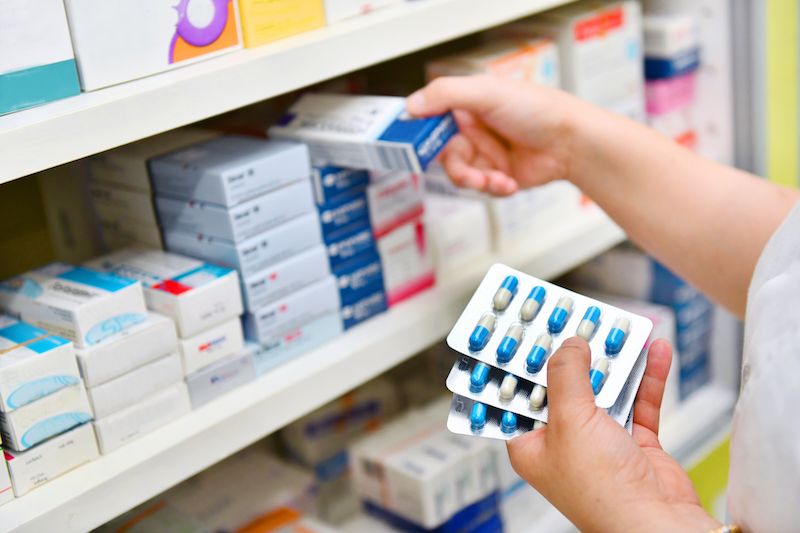


Pharmacies in Guernsey are struggling with a short supply of Hormone Replacement Therapy products, meaning some local patients are having to change their treatment.
Lots of suppliers have faced low stocks in recent months, which has affected menopausal women across the UK and Europe as well as in the Channel Islands.
The lack of availability has been put down to a combination of manufacturing shortages and other supply issues. Some patients will have to face the changes for a while though, with a number of items not set to return until 2021.
However, the States are reassuring local patients that the shortage is not related to Brexit.

Pictured: The States have said the shortage is not linked to Brexit.
"We have a great deal of sympathy for those who are being affected by the HRT shortage and we know this is far from ideal," said Chief Pharmacist for Health & Social Care, Ed Freestone. "Unfortunately, we are being caught up in what is a Europe-wide issue.
"The best thing to do is go to your GP to discuss alternatives, as the appropriate alternative will vary from patient to patient."
If those taking HRT patches were to stop suddenly they may experience rebound symptoms, such as hot flushes, night sweats, anxiety, mood swings and joint aches.
Medical Director at Healthspan, Dr Sarah Brewer, is also advising patients to speak with their doctor before making any changes: "If you have had a hysterectomy you could use an oestrogen gel for example, but for women with an intact womb, you also need a progestogen to protect the lining of the womb from over-stimulation. This means your GP will have to switch you from an HRT patch to an HRT tablet."

Pictured: HSC has advised those on HRT products to visit their GP for advice.
There has been some speculation over taking the HRT pill though, after research by The National Institute for Health and Care Excellence highlighted some risks.
"The risk of venous thromboembolism associated with HRT is greater for oral than patches," continued Dr Brewer. "In fact, the risk of VTE (blood clot or pulmonary embolism) are no greater with transdermal HRT given at standard therapeutic doses than baseline risk. Oral oestrogen is associated with a small increase in the risk of stroke, according to NICE."
In the meantime, menopausal women who usually use HRT products are advised to avoid excess stress, increase their intake of natural plant hormones and drink plenty of water.
The British Menopause Society has published updated advice on HRT shortages, which can be found on its website.
Comments
Comments on this story express the views of the commentator only, not Bailiwick Publishing. We are unable to guarantee the accuracy of any of those comments.